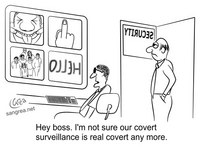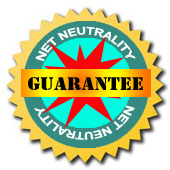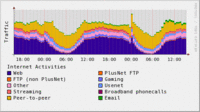 Everybody’s familiar with consumer identity privacy, as in protecting passwords
and social security numbers and complying with HIPAA, GLBA, SOX, PIPEDA,
et al.
But what about packet privacy?
Everybody’s familiar with consumer identity privacy, as in protecting passwords
and social security numbers and complying with HIPAA, GLBA, SOX, PIPEDA,
et al.
But what about packet privacy?
Never mind net neutrality, I want my privacy. As in packet privacy. The telcos say they need to sell non-neutral routing of traffic to recover the cost of building broadband networks. Moving from the Internet, where a packet-is-a-packet, to something that looks suspiciously like the 20th century telephone network requires remarrying the content and connectivity that TCP/IP divorced. It requires deep packet inspection. It requires looking at the content of communication.Despite Berninger’s phrasing, packet privacy isn’t something separate from net neutrality: it’s one of the key features of it. The point is that net neutrality isn’t just about pricing policies or technical means of content routing: it’s about privacy. And privacy is an issue that everybody understands. Stifling, throttling, or disconnecting without announced limits, censoring, wiretapping, and espionage: these are all violations of packet privacy.AT&tT does not plan to roll out two physical pipes to every end point in order to sell Google enhanced access. The new telco plan calls for content-based routing to separate traffic into media and destination specific VPNs (Virtual Private Networks). Laws exist to address the substantial privacy threats created by the fact telephone companies know Mr. Smith called Mr. Jones, but the privacy risks associated with “content routing” replacing “end point routing” enter an different realm.
— Forget Neutrality — Keep Packets Private, by Daniel Berninger, GigaOm, Sunday, January 14, 2007 at 8:30 PM PT
-jsq







